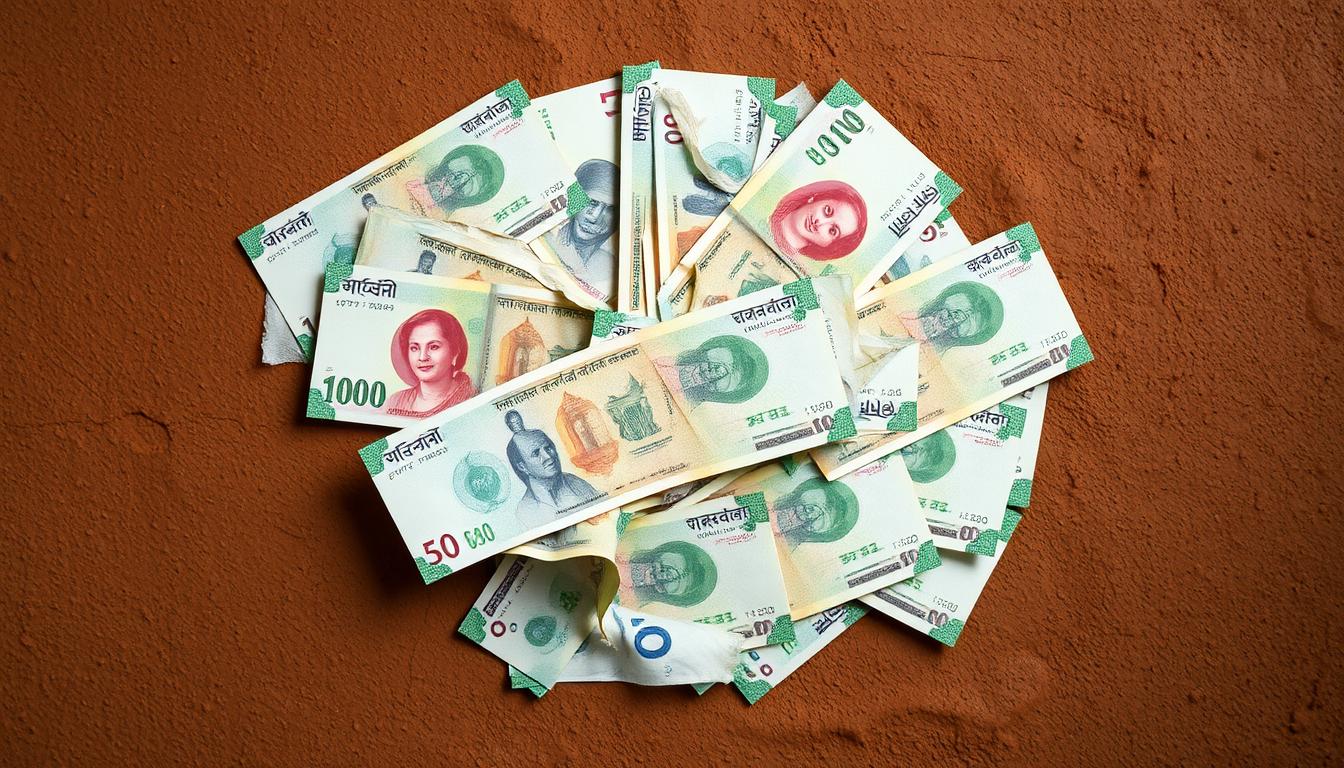✓ Accommodations ✓ Flights ✓ Rental Cars ✓ Tours & Activities
Did you know that over 90% of transactions in some parts of the world still rely on cash? This is especially true in places where understanding the local currency and payment methods is key to a smooth experience. If you’re planning a trip, knowing how to manage your money can make all the difference.
In this guide, you’ll learn everything about the Bangladeshi Taka, the official currency, and the best ways to handle payments. Whether you prefer cash, credit cards, or prepaid travel cards, we’ve got you covered. You’ll also discover tips to make the most of your money while exploring new places.
Carrying the right mix of cash and cards is essential. Exchange rates and local practices can vary, so being prepared ensures you’re never caught off guard. Ready to dive deeper? Let’s get started!
Introduction to Currency and Payment Methods in Bangladesh
Subtle fees and exchange rates can significantly impact your travel budget. Being aware of these factors ensures you’re prepared for any financial surprises. Planning ahead can save you both time and money.
Exchange rates play a big role in how much you spend. Tracking the mid-market rate helps you get the best value for your money. Hidden markups and foreign transaction fees can add up quickly, so it’s essential to compare rates before exchanging currency.
When it comes to payment options, you have several choices. Cash is widely accepted, but carrying too much can be risky. Credit and debit cards offer convenience, but they may come with additional charges. Prepaid travel cards are another option, allowing you to lock in exchange rates and avoid unexpected fees.
Don’t forget to consider visa requirements when planning your payments. Some countries have specific rules about how you can spend money. Being mindful of these details ensures a smoother experience.
Using cards abroad can sometimes be challenging. Not all merchants accept international cards, and you might face higher transaction costs. Always have a backup option to avoid getting stuck without access to funds.
By understanding these factors, you can make informed decisions about your finances. This way, you’ll focus more on enjoying your trip and less on worrying about money.
Understanding the Bangladeshi Taka (BDT)
Understanding the local currency is crucial for managing your expenses effectively. The Bangladeshi Taka (BDT) is the official currency and plays a central role in the country’s financial system. Its value directly impacts your spending, especially when converting your home currency.
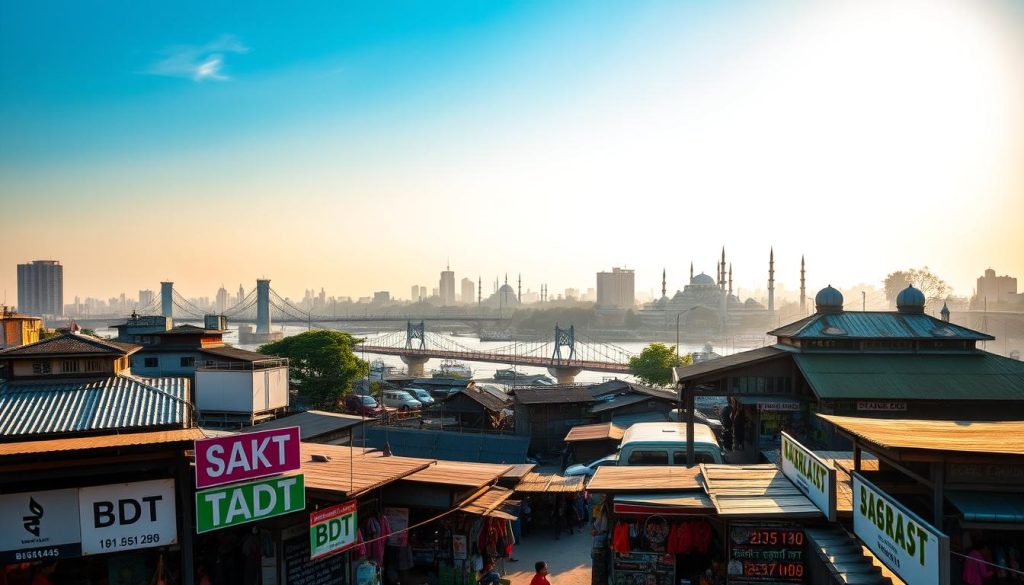
The Role of BDT in the Local Economy
The BDT is the backbone of daily transactions in the country. From markets to restaurants, cash is widely used, making it essential to carry local currency. Banks and money changers determine the exchange rate, which can vary based on market conditions.
Fluctuations in the rate can affect your budget. For example, a stronger BDT means your dollars won’t stretch as far. Keeping an eye on the exchange rate helps you plan better and avoid overspending.
How BDT Affects Your Spending as a Tourist
As a visitor, the value of the BDT influences your daily expenses. From transportation to meals, costs are tied to the local currency. Economic conditions, such as inflation, can also impact prices and your overall budget.
When exchanging money, banks often offer better rates than airports or hotels. However, they may charge fees or require additional documentation. Comparing options ensures you get the best deal.
Understanding these dynamics helps you make informed decisions. Whether you’re budgeting for accommodations or planning activities, knowing how the BDT works ensures a smoother financial experience.
How to Get the Best Exchange Rates
Getting the best exchange rates can save you money and make your trip smoother. Understanding how rates work and where to find them ensures you get the most value for your money. Start by tracking the mid-market rate, the real rate banks use to trade currencies.
Tracking the Mid-Market Rate
The mid-market rate is the fairest benchmark for currency exchange. Websites like Wise and XE provide live updates, helping you stay informed. By monitoring this rate, you can spot the best time to exchange your money.
Airports and hotels often charge higher fees and offer poor rates. Instead, use local banks or dedicated currency exchange services. They usually provide better deals and lower transaction fees.
Avoiding Hidden Markup Fees
Hidden fees can quickly eat into your budget. Always ask about additional charges before exchanging money. Providers like Wise emphasize transparency, making it easier to avoid surprises.
Compare rates from multiple sources to find the best deal. Online tools and apps can help you track live exchange rates and identify the most cost-effective options.
By staying informed and comparing rates, you can minimize extra costs and maximize your travel funds.
Bangladesh: Ultimate Travelers Guide to Currencies & Payments
Planning your finances before your trip can save you both time and money. One of the best ways to start is by exchanging currency before you arrive. Pre-trip exchange often offers better rates than on-the-spot options, especially at airports or hotels.
Pre-Trip Currency Exchange Options
Exchanging money before your trip ensures you have local currency ready when you land. Banks and reputable exchange services usually provide better rates compared to airport kiosks. For example, providers like Wise offer competitive rates with low fees, making them a smart choice.
Prepaid travel cards are another excellent option. They allow you to lock in exchange rates and avoid unexpected fees. Plus, they’re safer than carrying large amounts of cash. Always compare rates from multiple providers to get the best deal.
Comparing Card Payments and Cash Withdrawals
Using cards for payments can be more convenient than cash. Many international cards, like Visa and Mastercard, are widely accepted in major cities. However, be aware of foreign transaction fees, which can add up if not planned properly.
Cash withdrawals from ATMs are another option, but they often come with fees from both the ATM operator and your bank. To minimize costs, use ATMs affiliated with your bank or those that offer free withdrawals. Always decline dynamic currency conversion to avoid extra charges.
Balancing card payments and cash withdrawals ensures flexibility. Carry some cash for smaller vendors and use cards for larger expenses. This approach helps you stay prepared while keeping fees low.
Best Payment Methods for Travelers
Managing your money wisely while traveling can make your trip stress-free and enjoyable. Choosing the right payment methods ensures you’re prepared for any situation, whether you’re shopping at local markets or dining at restaurants.
Using Travel Debit and Prepaid Cards
Travel debit and prepaid cards are excellent tools for managing your spending abroad. Cards like the Wise Travel Card offer low fees and real-time currency conversion, ensuring you get the best value for your money. They also allow you to lock in exchange rates, protecting you from fluctuations.
These cards are widely accepted at ATMs and merchants, making them a convenient option. For example, Wise allows free ATM withdrawals up to a certain limit, saving you from unnecessary fees. Always compare options to find the card that suits your needs.
Benefits of Credit Cards on International Trips
Credit cards are another reliable option for international travel. They offer security, convenience, and often include travel insurance benefits. Cards like Visa and Mastercard are accepted globally, making them ideal for larger expenses.
However, be mindful of foreign transaction fees, which can add up. Some cards, like those from Wise, minimize these fees by using the mid-market rate for conversions. Having multiple card options ensures you’re covered in diverse spending scenarios.
| Payment Method | Advantages | Considerations |
|---|---|---|
| Travel Debit Card | Low fees, real-time conversion, ATM access | Withdrawal limits, potential fees |
| Prepaid Card | Locked exchange rates, security | Reloading may incur fees |
| Credit Card | Wide acceptance, travel insurance | Foreign transaction fees |
By combining these payment methods, you can streamline your financial activity while traveling. Whether you’re withdrawing cash or making card payments, being prepared ensures a smoother experience.
Practical Tips for Exchanging Money in Bangladesh
Exchanging money efficiently can make your trip smoother and more enjoyable. Knowing the best times and places to exchange currency ensures you get the most value for your cash. Here are some actionable tips to help you navigate the process.
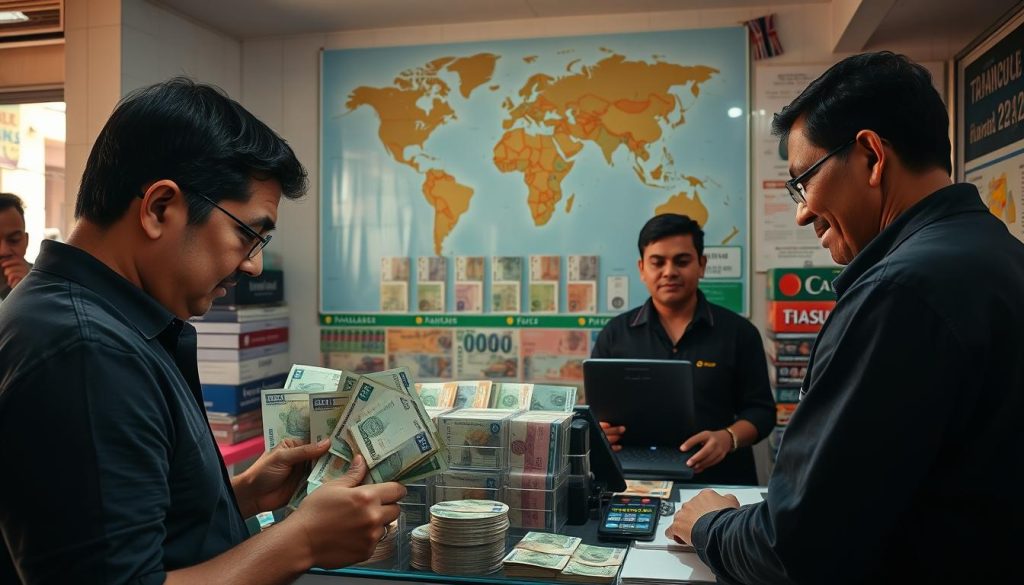
When and Where to Exchange Your Currency
Timing and location are key when exchanging money. Avoid airport kiosks and hotels, as they often offer poor rates. Instead, opt for local banks or reputable exchange services in city centers. These providers typically offer better rates and lower fees.
Always plan ahead by researching exchange outlets before your trip. This ensures you’re prepared and can avoid last-minute stress. For example, providers like Wise offer competitive rates with minimal fees, making them a reliable choice.
When using ATMs, always decline dynamic currency conversion (DCC). Paying in the local currency ensures you avoid unnecessary charges. This simple tip can save you a significant amount during your travels.
Accurate information is crucial. Track the mid-market rate using tools like Wise or XE to ensure you’re getting a fair deal. This detail can make a big difference in how much you spend.
By carefully planning your currency exchange, you can maximize the value of your cash. Whether you’re withdrawing from ATMs or using exchange services, these strategies ensure a smoother financial experience.
Travel Money Safety and Efficient Management
Keeping your money safe while traveling is just as important as managing it wisely. Whether you’re withdrawing cash or using cards, taking a few precautions can save you from unnecessary fees and security risks. Here’s how to protect your finances and stay in control.
Safe Use of ATMs and Avoiding Dynamic Conversion
When using ATMs, always choose machines in secure locations. Opt for those inside banks or well-lit areas rather than street ATMs, especially at night. This reduces the risk of skimming or theft.
Another tip is to decline dynamic currency conversion (DCC) when prompted. Paying in the local currency ensures you avoid extra charges. This is particularly important at airports or tourist-heavy areas where DCC is common.
Carry only the cash you need for the day and store the rest securely. Splitting up your money, cards, and valuables into different locations provides a safety net if one area is compromised.
Tech Tips for Monitoring Your Finances
Modern technology makes it easier than ever to keep track of your spending. Use mobile apps from your bank or travel card provider to monitor transactions in real-time. This helps you spot any unauthorized charges quickly.
Notify your bank of your travel plans before leaving home. This prevents your account from being flagged for suspicious activity when you use it abroad. Many banks offer alerts for withdrawals or large purchases, adding an extra layer of security.
Consider using a travel card with low fees and real-time conversion rates. These cards often come with apps that let you lock or unlock your card, providing peace of mind if it’s lost or stolen.
| Safety Tip | Why It Matters |
|---|---|
| Use ATMs in secure locations | Reduces risk of skimming or theft |
| Decline dynamic currency conversion | Avoids unnecessary charges |
| Monitor transactions with apps | Helps spot unauthorized charges |
| Notify your bank of travel plans | Prevents account access issues |
By combining these strategies, you can protect your financial resources and focus on enjoying your trip. A little vigilance goes a long way in ensuring a smooth and stress-free experience.
Budgeting Your Trip: Daily Expenses and Cost Management
Smart budgeting can transform your travel experience from stressful to seamless. By breaking down your daily expenses and planning ahead, you can enjoy your trip without worrying about overspending. Here’s how to manage your costs effectively and make the most of your travel budget.
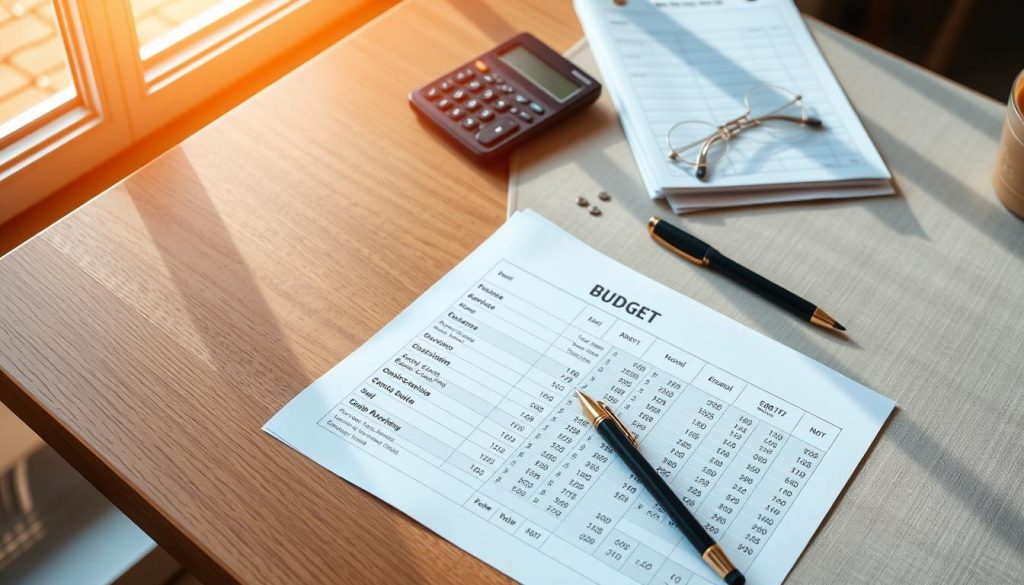
Sample Budget for Accommodation, Meals, and Transport
Creating a daily budget helps you stay on track. For example, a mid-range hotel might cost around $50 per night, while budget options can be as low as $20. Meals at local restaurants typically range from $5 to $15 per person, depending on the location and type of cuisine.
Transportation is another key expense. Public transport like buses or trains can cost as little as $1 per ride, while taxis or ride-sharing services may charge $10 or more for short distances. Planning your routes in advance can save you money and time.
Planning for Unexpected Costs
Unexpected expenses can arise during any trip. Setting aside 10-15% of your budget for emergencies ensures you’re prepared. This could cover anything from last-minute transportation changes to unplanned activities.
To save on costs, consider eating at local markets or street food stalls instead of touristy restaurants. These options are often cheaper and offer a more authentic experience. Additionally, using public transport or walking can reduce your daily expenses significantly.
Detailed planning is essential. Track your spending daily to ensure you’re staying within your budget. Apps like Expensify can help you monitor your expenses in real-time, giving you better control over your finances.
By following these tips, you can manage your costs effectively and enjoy a stress-free trip. Smart budgeting not only saves money but also enhances your overall travel experience.
Cultural Considerations and Currency Etiquette
Understanding local customs can make your trip more enjoyable and respectful. Every country has its own unique practices when it comes to handling money, and being aware of these can help you navigate payments smoothly. This guide will walk you through key etiquette tips for tipping, negotiating, and engaging with locals.
Understanding Local Customs in Payment
In many places, cash is still the preferred method of payment, especially in smaller shops or markets. When visiting a new place, it’s important to observe how locals handle transactions. For example, handing money directly to someone is often seen as more respectful than placing it on a counter.
Respecting these small details can make a big difference in how you’re perceived. It’s also a good idea to carry smaller bills for convenience, as vendors may not always have change for larger denominations.
Tipping and Negotiation Practices
Tipping is a common practice in many parts of the world, but the amount varies by country. In restaurants, a tip of 10%-15% is customary if a service charge isn’t included. For hotel staff, rounding up the fare or leaving a small amount is appreciated.
Negotiation is another important activity, especially in local markets. While haggling is expected in some places, it’s essential to do so politely. Start by offering a lower price but be prepared to meet in the middle. This approach shows respect for the vendor’s livelihood while ensuring you get a fair deal.
By following these guidelines, you can handle payments with confidence and respect. Understanding cultural nuances not only enhances your experience but also fosters positive interactions with locals.
Additional Travel Tips for a Smooth Financial Journey
Traveling can be exciting, but managing your finances effectively ensures a stress-free experience. Local experts share valuable insights to help you navigate payments and make the most of your money while abroad. Here are some practical tips to simplify your financial journey.
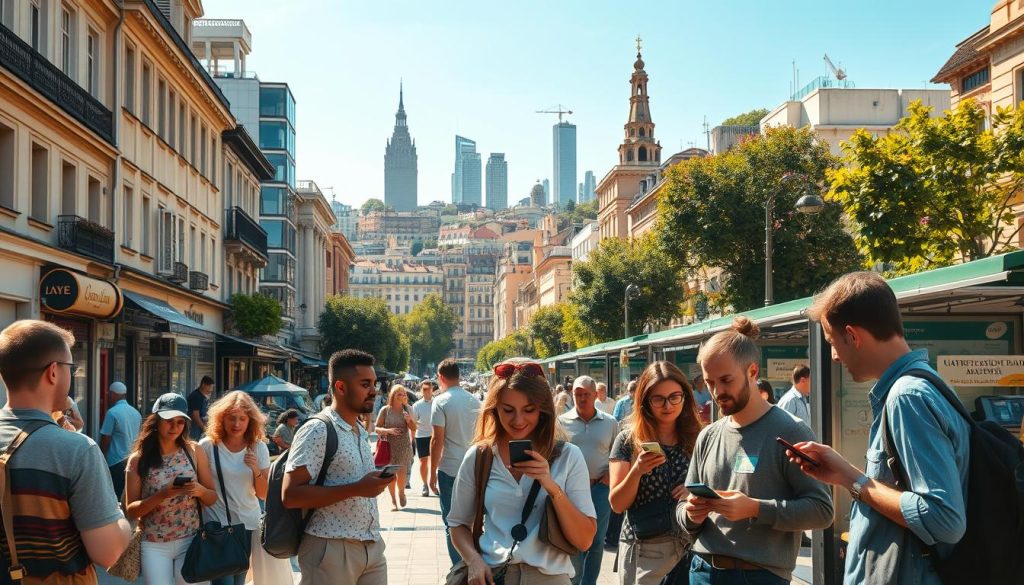
Choosing the Right Payment Methods
Selecting the best card for your trip can save you time and money. Experts recommend using multi-currency travel cards like Wise or Monzo. These cards offer real-time exchange rates and low fees, making them a smart option for international travel.
Credit cards are also widely accepted, but be mindful of foreign transaction fees. Some cards, like those from Chime, eliminate these fees entirely. Always compare deals before choosing a card to ensure it fits your needs.
Managing Your Money Wisely
Carrying a mix of cash and cards ensures flexibility. Use cash for small purchases and cards for larger expenses. This approach helps you avoid unnecessary fees and keeps your money secure.
Experts also suggest setting a daily budget to track your spending. Apps like Expensify can help you monitor expenses in real-time, giving you better control over your finances.
Benefits of Innovative Travel Cards
Travel cards like Wise and Monzo offer unique features that simplify financial management. For example, Wise allows free ATM withdrawals up to $6,000 monthly, while Monzo has no foreign transaction fees. These cards also provide real-time notifications, helping you stay on top of your spending.
| Travel Card | Key Features | Considerations |
|---|---|---|
| Wise | Multi-currency support, low fees | ATM withdrawal limits |
| Monzo | No foreign transaction fees | ATM operator fees may apply |
| Chime | No foreign transaction fees | Daily withdrawal limits |
By following these expert tips, you can handle your finances with confidence. Staying informed and flexible ensures a smoother and more enjoyable travel experience.
Conclusion
Navigating financial details while traveling can enhance your experience. Thisguidehas covered essentialinformationto help you manage your money effectively. From understanding exchangeratesto choosing the right payment methods, everydetailmatters.
Preparation is the key to a smooth journey. Knowing how to handle local currency and payment practices can save you time and avoid unnecessary stress. Whether you’re exploring a newcountryor revisiting a favorite spot, these tips ensure you’re always in control.
Refer back to thisguidefor any questions about fees,rates, or payment options. Smart planning makes all the difference, allowing you to focus on enjoying your trip. Remember, the rightinformationand a little preparation are the best tools for a seamless financial journey.
The above is subject to change.
Check back often to TRAVEL.COM for the latest travel tips and deals.
Here are some Tours & Sightseeing suggestions that might pique your interests!
